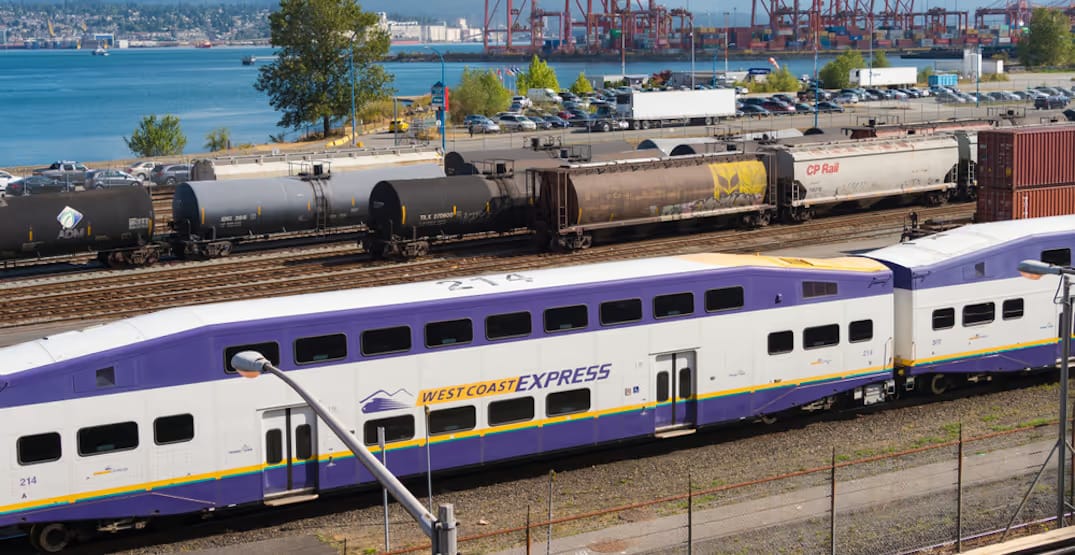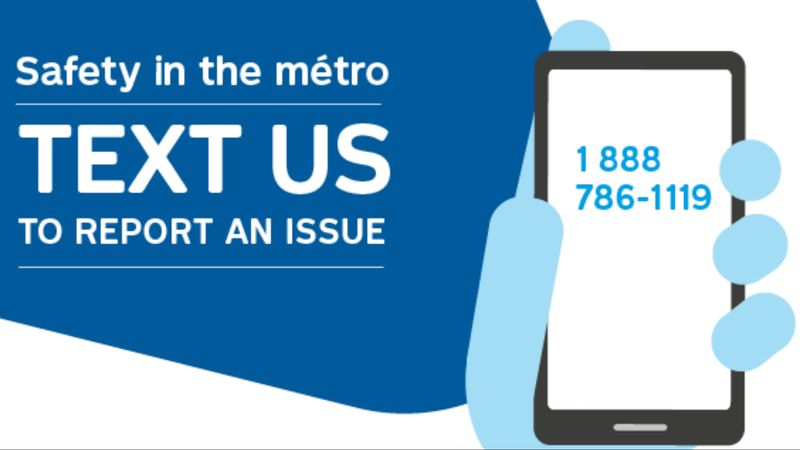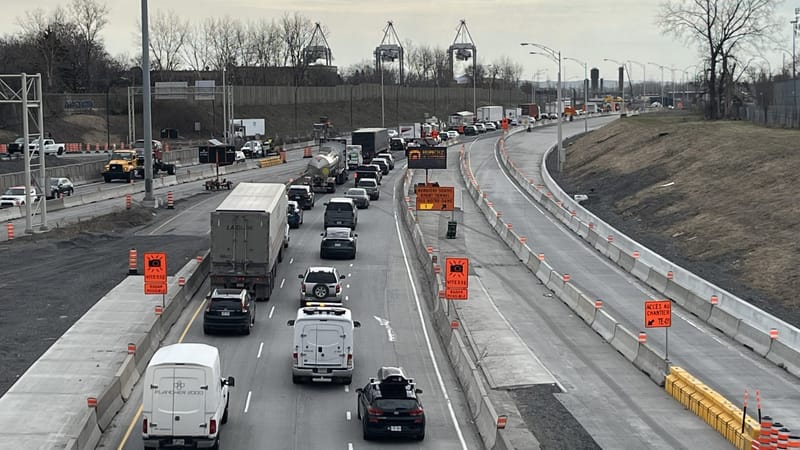Potential railway strike could impact Metro Vancouver's water supply and disrupt West Coast Express commuter rail services
The potential full shutdown has even prompted the Metro Vancouver Regional District to change its supply chain strategy to ensure an adequate supply of chemicals needed to create the region’s critical safe drinking water supply.

In anticipation of a potential historic Canada-wide freight railway strike, businesses and transportation providers are scrambling to prepare for possible disruptions to both Canadian Pacific Kansas City (CPKC) and Canadian National Rail (CNR) services.
On Sunday, the Teamsters Canada Rail Conference (TCRC), the union representing thousands of freight railway workers, served a 72-hour strike notice to CPKC, warning that unless an agreement is reached, their members walk off the job at 12:01 am ET on Thursday, August 22, 2024 (9:01 pm PT on Wednesday, August 21).
Shortly after the union’s ultimatum, CNR issued a notice to the TCRC indicating that it will lock its members out at the same time, unless an agreement or binding arbitration is fulfilled ahead of time.
The complete shutdown of Canada’s two major freight railway companies would have a profound ripple effect on international trade, supply chains for manufacturing and retail businesses, the transportation of bulk goods such as grain and fossil fuel-based products, and other major economic disruptions.
It would likely lead to significant congestion and delays at Canada’s largest cargo and freight ports in Vancouver, Prince Rupert, and Montreal, with the stoppage of freight trains typically serving these ports leading to an accumulation of cargo waiting to be transported.
More businesses are likely to turn to trucking or air freight to ensure the continuity of their logistical operations and supply chains, which could strain logistics services and lead to higher prices for consumers, given that other modes of freight transportation are generally more expensive than the railways.
About 70% of all intercity surface freight and half of Canada’s exports are moved by rail.
“These collective bargaining negotiations belong to CN Rail, CKPC, and TCRC workers alone — but their effects will be borne by all Canadians,” said Steven MacKinnon, the federal Minister of Labour and Seniors, in a statement on Monday in reaction to the threat of the disruptions.
“The parties must do the hard work necessary to reach agreements at the bargaining table and prevent a full work stoppage. Canadians expect the parties’ efforts to be equal to the trust conferred on them.”

The potential full shutdown has even prompted the Metro Vancouver Regional District to change its supply chain strategy to ensure an adequate supply of chemicals needed to create the region’s critical safe drinking water supply.
As the regional district’s supply of sodium hypochlorite, also simply known as chlorine, coming by freight rail could be disrupted, preparations have been made to stock up on supplies and use freight trucks to maintain the necessary supplies.
“Metro Vancouver is taking the possibility of a strike that could disrupt supply chains seriously, and is working to secure its supply of sodium hypochlorite. The regional district has topped up its sodium hypochlorite storage tanks to maximum levels and Metro Vancouver’s main supplier for sodium hypochlorite, a large multi-national company, has supply available at its plants within the region,” said Goran Oljaca, the director of engineering and construction of Metro Vancouver Water Services, in a statement to Daily Hive Urbanized.
“This supplier is confident that it will be able to source sodium hypochlorite from its plants outside the region, and will be able to transport it to the region via truck if needed.”
Oljaca also notes that the regional district is working with an alternate chlorine supplier to provide smaller loads to maximize chemical storage throughout Metro Vancouver’s drinking water treatment and distribution network.
While the regional district storage and supply chain strategies are impacted, it does not foresee any disruptions to the drinking water treatment process, which uses chlorine for both the primary and secondary disinfection steps.
A shutdown of CKPC and CNR would also impact the commuter rail services of public transit networks in Vancouver, Toronto, and Montreal, as much or the entirety of these services run on tracks owned and operated by the freight railway companies.
TransLink is warning that Metro Vancouver’s West Coast Express commuter rail services will not be able to run starting this Thursday, August 22, if no deal is reached between CPKC and the union. The commuter rail service, which runs during the peak direction during peak periods of weekdays only, uses tracks that are operated and maintained by CPKC.
“If a lockout occurs, West Coast Express will not be able to run because it operates on rail owned by CPKC and cannot operate without CPKC’s dispatchers and rail workers. The West Coast Express service outage would be indefinite until the CPKC lockout ends,” TransLink spokesperson Tina Lovegreen told Daily Hive Urbanized.
According to the public transit authority, over 3,000 customers use the West Coast Express each weekday.
Ridership recovery on the West Coast Express continues to lag behind other TransLink services, largely due to the practice of semi-remote office work of downtown Vancouver businesses.
Due to labour laws, TransLink is unable to mitigate the service impacts of a shut down to the West Coast Express.





